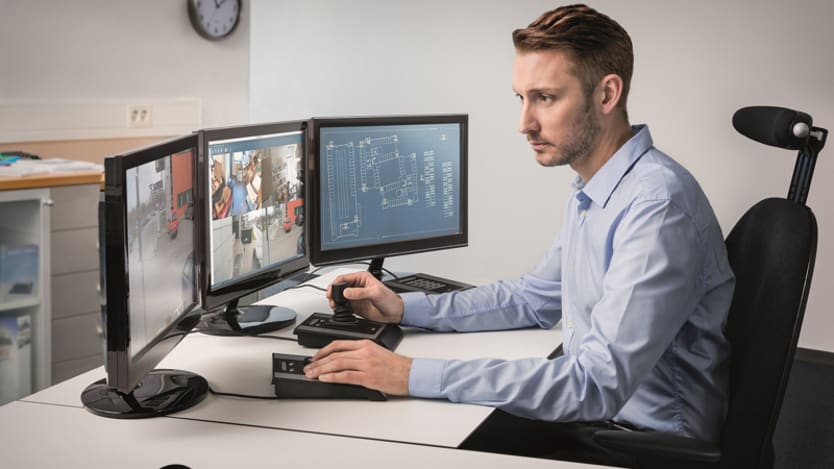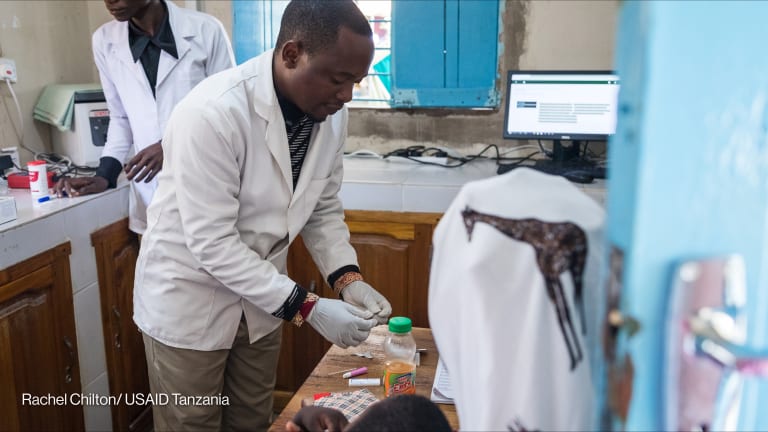
During this week’s World Economic Forum in Davos, Switzerland, discussions have centered around the theme, “Mastering the Fourth Industrial Revolution.” The WEF says that we are on the brink of this Industrial Revolution — one that is focused on the interaction of physical systems and cybertechnology, and that is “distinct in the speed, scale and force at which it transforms entire systems of production, distribution, consumption.”
Therefore, as leaders gather with a mission to improve the world through innovation and the integration of technologies, they must look for opportunities to embrace the fourth Industrial Revolution and bring about fundamental changes in the way industries and governments operate.
One such opportunity is the Global Fund’s new e-marketplace.
The Global Fund — the world’s largest public health financier — mobilizes and invests nearly $4 billion a year to accelerate the end of AIDS, tuberculosis and malaria as epidemics, and to support the building of resilient and sustainable health systems across the globe. The organization’s new e-marketplace platform will have the potential to revolutionize the procurement of public health goods by providing a sustainable, market-based approach.
Current global health procurement practices are burdensome and require significant man-hours in every implementing country to gather data to compare product and pricing information. Additionally, the current process is subjected to delays, which can have devastating effects on a country’s efforts to mitigate disease burdens. The Global Fund’s e-marketplace will aim to address these issues — beginning with lifesaving supplies for the treatment and prevention of HIV/AIDS, tuberculosis and malaria, but with the ultimate goal of making the process available for a broad range of commodities to benefit procurement and supply chain systems across public health.
This week, global leaders convening at Davos will discuss critical questions about the fourth Industrial Revolution’s integration of digital and physical systems. As the e-marketplace will help to support the health of millions of people through the Global Fund, it is important to examine how this new initiative will address such questions. The following are three major questions that the e-marketplace will help answer.
1. How can technology be deployed in ways that contribute to inclusive economic growth, rather than exacerbate unemployment and income inequality?
HIV/AIDS, tuberculosis and malaria all have a damaging effect on economies around the world. Malaria can impact a country’s gross domestic product by an estimated 5-6 percent, the costs associated with tuberculosis can be as much as 7 percent of a country’s gross domestic product, and HIV and AIDS in South Africa is estimated to depress GDP by as much as 17 percent over the next decade. In addition to steady programming to combat the diseases themselves, cost savings in procurement of supplies will greatly benefit national economies.
The Global Fund’s e-marketplace has the potential to have additional benefits by providing greater access to markets for new and regional suppliers and manufacturers. Furthermore, the e-marketplace will result in an estimated savings of $250 million by 2019 from economies of scale and product standardization. These savings will be crucial as countries continue to take greater ownership over their public health responses.
2. How can breakthroughs in science and technology help in solving problems of the global commons from climate change to public health?
In a changing development landscape, it is important for the Global Fund to develop tools that will be useful as countries transition from Global Fund financing to sustainable domestic programs. Countries will have the option to utilize the e-marketplace during and after this transition, and also have the option to place orders coming from their own budget, instead of being restricted to Global Fund programs.
As the e-marketplace is developed, there is the additional potential for it to transition from a Global Fund-only tool to a global public good, where all countries are able to more efficiently purchase all types of health commodities.
3. Finally, how can governments build institutions capable of making decisions, when the challenges they face are more complex, fast-moving and interconnected than ever before?
One of the driving forces behind the development of the Global Fund’s e-marketplace was to provide greater access to quality products through a more efficient procurement process. The e-marketplace will achieve this in part by providing all of its users with data to help with forecasting and by increasing market visibility to ensure quality. The products available on the e-marketplace will include prices that have been pre-negotiated for bulk purchasing, availability and estimated delivery times. Countries will be able to quickly and efficiently compare the information and pricing of different commodities. As a result, the Global Fund projects that transaction times will be shortened by 30 percent, and on-time delivery will improve by more than 8 percent. All of these steps will help to ensure greater country ownership.
The impact of the fourth Industrial Revolution will ultimately be judged by how it is able to improve our world. Currently, procurement systems for public health goods are limited by both lack of transparency and time-consuming and expensive manual processes. The Global Fund’s e-marketplace presents an innovative solution that takes advantage of new technologies to streamline these lifesaving activities.
Follow the discussion at the World Economic Forum in Davos at @devex and join the conversation using #WEF16.
Join the Devex community and access more in-depth analysis, breaking news and business advice — and a host of other services — on international development, humanitarian aid and global health.
Search for articles
Most Read
- 1
- 2
- 3
- 4
- 5








